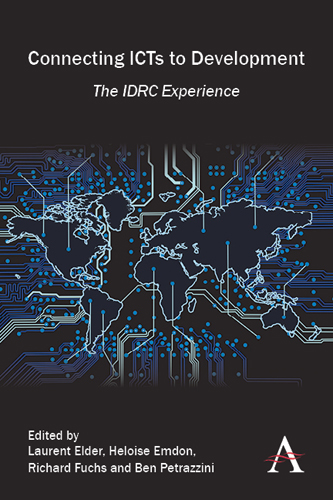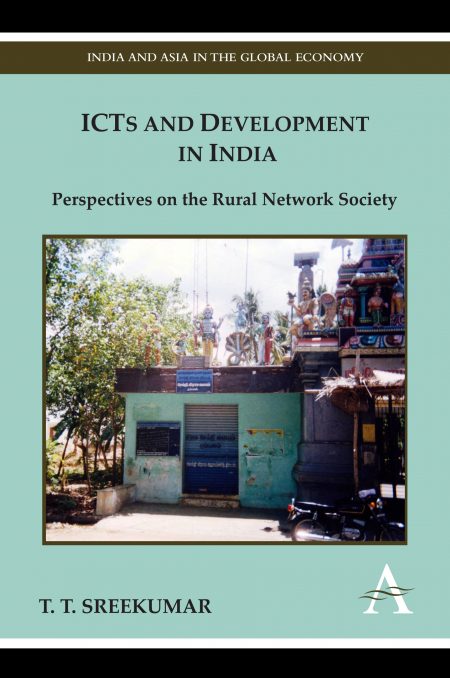ICTs and Development in India
Perspectives on the Rural Network Society
Title Details
- ISBN: 9781843318439
- May 2011
- Pages: 228
- Imprint: Anthem Press
‘ICTs and Development in India’ provides a critical account of the impact of the use of Information Technology in development projects in India, focusing particularly on E-governance and Information & Communication Technologies (ICT) development programs initiated by Civil Society Organizations (CSOs). Sreekumar challenges the conventional wisdom concerning the potential of ICT to provide unprecedented social and economic opportunities for vulnerable groups such as women and marginalized communities by highlighting its failure to bridge social divides. He argues that in addition to reinforcing existing social divides, the patterns of ICT deployment and control have in certain cases created new divides. Given such tensions and contradictions, this book questions whether it is appropriate to consider civil society as an independent realm of social action separated from State and Market.
Sreekumar offers a fresh perspective and added depth to the discussions on the social impacts of new technologies in rural areas, especially in terms of methods, analytics and approach. The recognition of the shortcomings of CSO initiatives plays an important part in redefining the role of civil society and understanding its fractured relations with the State and Market. Sreekumar therefore creates a powerful critique on the interpretation of agency and the structure of rural transformation as mediated by new technologies in the particular context of India’s social and economic transition.
T. T. Sreekumar is Assistant Professor at the Department of Communications and New Media at the National University of Singapore. His research interests focus on the social impact of ICTs, the impact of mobile phones in developing countries, and the social impacts of tourism, civil society and new social movements and youth techno-culture in Asia.
List of Figures and Tables; Preface; 1. Introduction: Exploring the Rural Network Society; 2. Civil Society and Cyber-Libertarian Developmentalism; 3. Decrypting E-Governance; 4. Cyber-Kiosks and Dilemmas of Social Inclusion; 5. Innovating for the Rural Network Society; 6. ICT and Development: critical Issues; Notes; Bibliography; Index
‘Rural India has become a model laboratory for global experiments in a new era of market-driven development communication. T. T. Sreekumar’s critical and empirically rich study of India’s emerging “rural network society” offers a much needed counter-history to the dominant techno-utopian narratives that continue to fuel both policy and scholarly discussions.’ — Paula Chakravartty, Associate Professor, Department of Communication, University of Massachusetts
Related products
-
Financial Engineering of Climate Investment in Developing Countries
Nationally Appropriate Mitigation Action and How to Finance It
Søren E. Lütken
June, 2014
£115.00 / $115.00 -
Connecting ICTs to Development
The IDRC Experience
Edited by Heloise Emdon, Laurent Elder, Ben Petrazzini, Richard Fuchs
December, 2013
£115.00 / $115.00 -
The Military and Denied Development in the Pakistani Punjab
An Eroding Social Consensus
Shahrukh Rafi Khan, Aasim Sajjad Akhtar
with Sohaib BodlaNovember, 2014
£115.00 / $115.00 -
Climate Chaos and its Origins in Slavery and Capitalism
Reva Blau, Judith Blau
October, 2020
£29.99 / $29.99 -
Up Against the Wall
The Case for Opening the Mexican-American Border
Peter Laufer
foreword by Vicente FoxSeptember, 2020
£34.95 / $34.95 -
Rethinking Foreign Investment for Sustainable Development
Lessons from Latin America
Edited by Kevin P. Gallagher, Daniel Chudnovsky
foreword by José Antonio OcampoFebruary, 2009
£115.00 / $115.00








